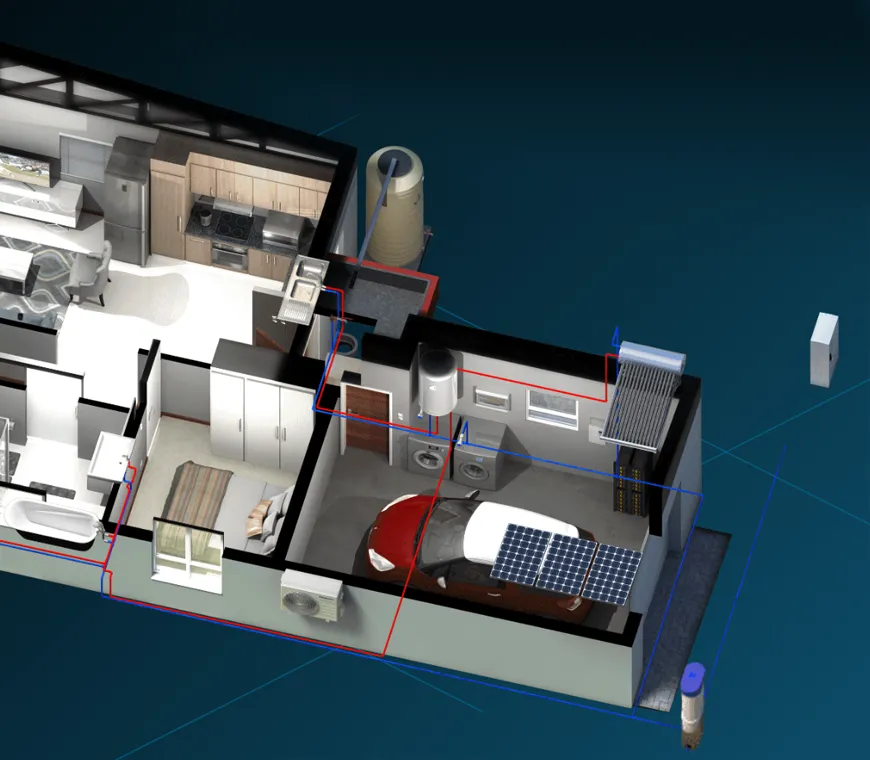Pipeline Corrosion: Protecting Critical Infrastructure
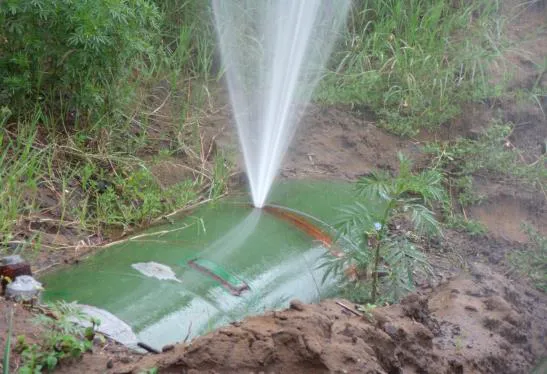 Have you ever wondered how water gets to your home or how fuel travels across the country? Underground pipelines transport essential resources like water, oil, and gas over long distances. But these steel pipelines face a serious enemy: corrosion.
Have you ever wondered how water gets to your home or how fuel travels across the country? Underground pipelines transport essential resources like water, oil, and gas over long distances. But these steel pipelines face a serious enemy: corrosion.
What is Corrosion?
Corrosion is the process where metals deteriorate because of chemical reactions with their environment. Think of it like rust forming on a bicycle left in the rain, but on a much larger scale. For pipelines, corrosion isn't just an appearance problem—it can lead to leaks, environmental damage, and expensive repairs.
The Science Behind Corrosion
Corrosion is actually an electrochemical process—combining chemistry and electricity! For corrosion to occur, four components must be present:
- An anode (where metal is lost)
- A cathode (which doesn't corrode)
- An electrolyte (like water or soil that conducts electricity)
- A metallic path connecting the anode and cathode
This forms what engineers call a "corrosion cell," similar to a battery. In pipelines, different areas of the same metal surface can become anodes and cathodes due to small variations in the metal or surrounding environment.
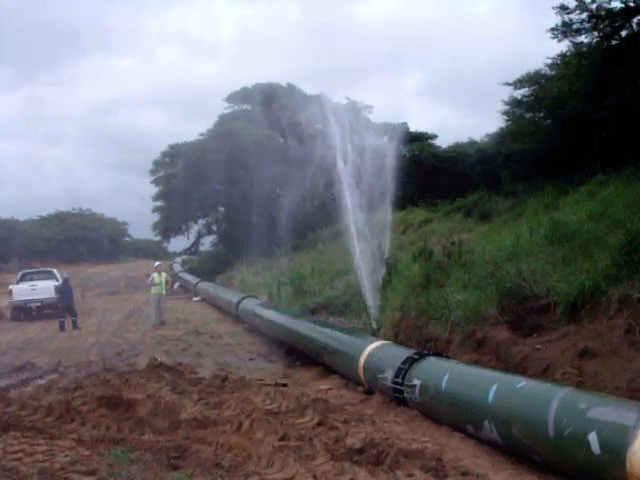
Why Does Pipeline Corrosion Matter?
Corrosion has significant impacts:
- Economic costs: Billions of dollars spent on repairs and replacements
- Environmental concerns: Leaks can contaminate soil and water
- Resource waste: Producing new steel for replacements uses enormous amounts of water and creates carbon emissions
How Engineers Fight Corrosion
Engineers use multiple methods to protect pipelines:
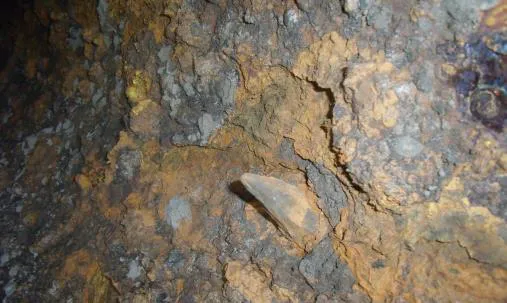 For Internal Corrosion:
For Internal Corrosion:
- Protective linings inside pipes (like epoxy or cement)
- Water treatment with chemicals to make it less corrosive
- Biocides to prevent bacteria-caused corrosion
For External Corrosion:
- Protective Coatings: These create a physical barrier between the steel and corrosive soil. Engineers must carefully select the right coating materials like epoxy, polyurethane, or polyethylene.
- Cathodic Protection: This fascinating technique uses electrical principles to protect metal. There are two main types:
- Sacrificial Anode systems: Connecting more easily corroded metals (like magnesium) to the pipeline, so they corrode instead
- Impressed Current systems: Using external power sources to send a small protective current through the pipeline
- AC Corrosion Protection: When pipelines run near high-voltage power lines, special systems prevent electrical interference.
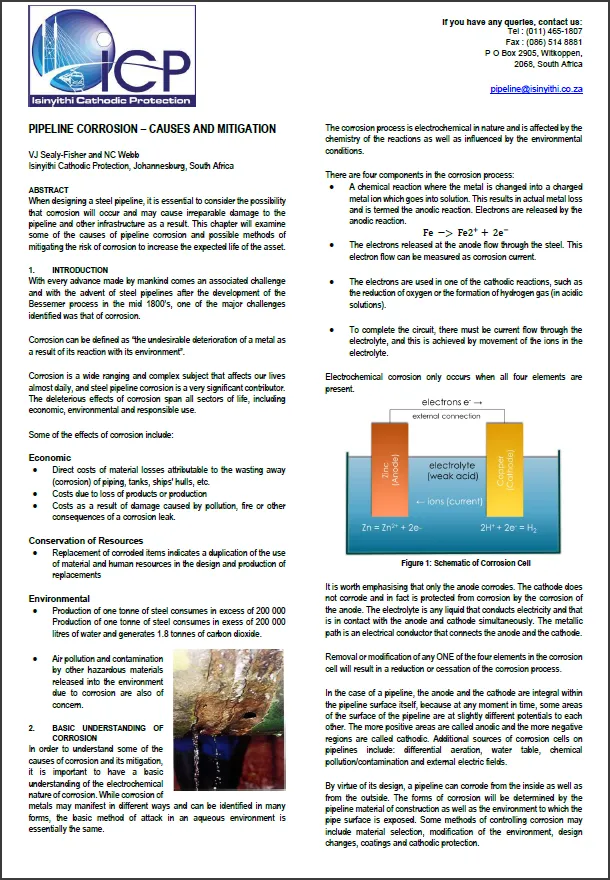 |
| Click to download the PDF about pipeline corrosion |
STEM Careers in Corrosion Prevention
Fighting corrosion requires professionals from many STEM fields:
- Chemical engineers develop protective coatings and treatments
- Electrical engineers design cathodic protection systems
- Materials scientists research corrosion-resistant metals
- Environmental scientists assess soil conditions and environmental impacts
- Civil engineers plan pipeline routes and installation
- Computer scientists create models to predict corrosion rates
These professionals use science and math daily to solve real-world problems. They help extend pipeline lifespans from a few years to over 50 years!
The Future of Corrosion Prevention
As infrastructure ages and environmental concerns grow, the need for corrosion experts increases. New technologies include smart sensors that detect corrosion before leaks occur, advanced coating materials, and computer modelling to predict problem areas.
Corrosion prevention demonstrates how STEM fields combine to solve important challenges. By protecting pipelines, these professionals ensure safe, reliable delivery of resources while preventing environmental damage—making this an exciting and impactful career path for students interested in science and engineering.
Corrosion Institute of Southern Africa

